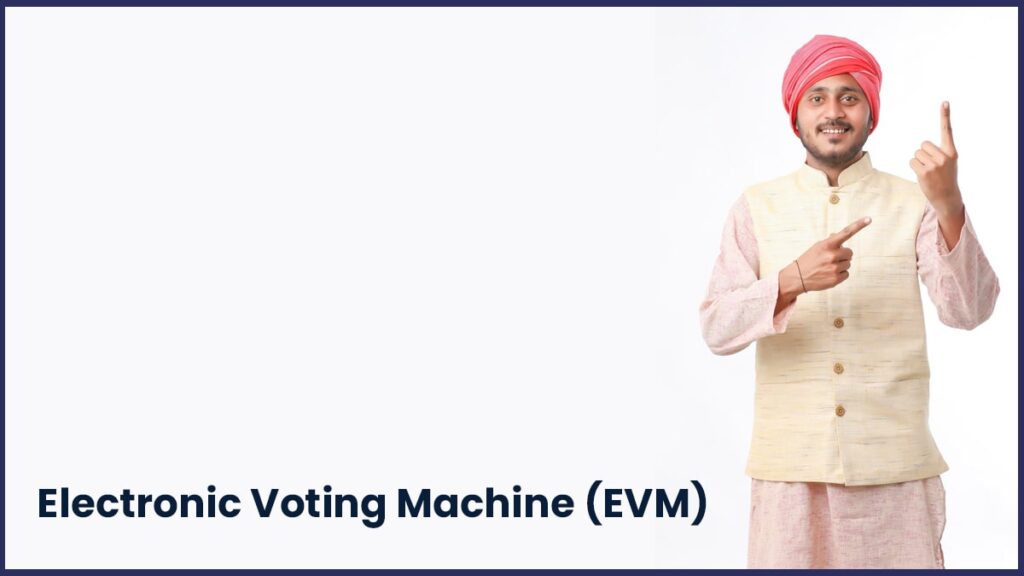In the world’s biggest democracy, democratic principles are upheld at utmost priority by various institutions, political parties, and Judiciary.
To keep a democracy thriving and prosperous, the country has to undergo free and fair elections which have to be conducted by an independent entity.
In a massive country like India, it is tough to conduct elections due to its enormous size and population however, India exercises voting for the people every 5 years and conducts it in a very well-mannered way throughout the country.
If a political party wins it is celebrated and if it loses the acceptance of the defeat and mandate of the people is accepted with open arms by political parties as well.
This makes India a vibrant and unique democracy in the world especially when compared to the neighborhood regions of Asia.
A very crucial part of exercising voting is the EVM machines. EVM stands for Electronic Voting machine which electronically calculates the voting done by the people and publishes the results.
The Election Commission of India is an autonomous body headed by the Election Commissioner which is appointed by the President of India and cannot be removed easily.
These machines are in use since 1999, and ever since the use of EVMs the casting, counting, and operating of votes becomes easy and faster for the Election Commission.
In this article, we will discuss the Electronic Voting machine, the advantages of EVM machines, etc.

Constitutional Act for Elections & EVMs
The following are the Constitutional Acts for Elections which as per the Constitution of India foresee the operations of Elections in India-
Article 324
This article states the operations, functioning, hierarchy, and autonomous traits of the Election Commission and related posts in the Constitution. There are 6 clauses in this article and each clause talks about roles, appointments, functioning, and other aspects of the election in India.
Article 325
This article deals with removing any discrimination of caste, creed, religion, gender, or any other lines of discrimination for voting of an individual citizen of India.
Article 326
Article 325 talks about granting the Universal Adult Franchise which means any individual above the age of 18 and is a citizen of India is eligible to vote unless constitutionally disqualified by the court of law.
Article 327
This article gives powers to the Parliament to make provisions concerning elections to the legislature.
Article 328
This article gives powers of the State Legislature to make provisions concerning elections to such Legislature.
Article 329
Restrict any questioning in Courts regarding provisions or laws made in Article 327 and Article 328 of the Indian Constitution.
The Representation of the People Act, 1951 Section 61 A
According to this act, the election commission will be allowed to use EVM Machines to conduct elections. Before this act, only physical ballots and manual counting were adopted to conduct elections in India.
Advantages of EVM Machine
The following are the advantages of EVM Machines in India-
- Votingg using EVM Machines cannot be rigged due to various security measures taken by the Election Commission including high-security Chip being used
- Votes can be stored up to 10 years after the election has been conducted
- EVMs reduce the time to cast vote as well as reduce the time taken for the counting process to get completed
- Using EVM machines relying on papers can be reduced and hence is an environmentally friendly measure
- Only one vote can be cast per person as the machine will only register the first vote for any number of buttons pressed
- You can also choose an option for NOTA which signified that you can happy to vote for any of the listed candidates
- EVM has a speed of 5 votes per minute, anything exceeding this speed will result in no voting allowed until the time frame has been met
- EVM Machines are powered by batteries which allow the citizens to vote even without electricity which also comes in handy when organizing voting in remote areas
EVM Machine- Design, and Security
EVM Machine is designed and maintained by the Election Commission of India in partnership with Bharat Electronics which is a Government of India company.
It consists of two units namely- Control Unit and Ballot Unit. The Control Unit is always with the Polling office and Ballot Unit is where the voter will press the button to vote.
When a voter comes to the ballot for voting, his/her identity will be checked and marked for voting followed by a polling officer enabling the voter to vote.
The machine is designed in such a manner that it can overcome easily a electricity shortage because it uses an electricity backup unit built into itself allowing it to function with a battery.
FAQ
EVM stands for Electronic Voting Machine which is a voting machine that electronically cast a vote for a citizen. Using this technology, the Election Commission can easily conduct voting in the country.
EVM is the latest technology which is used for voting in India and unlike other countries which still use paper ballots for voting like the United States, India was far ahead in adopting the technology in the voting system.
No, although many candidates (one who loses) accuse the other side of EVM tampering, however, the accusation was never proven to be true in the eyes of the law. EVM machine in India is controlled by the Election Commission in India which is an autonomous body that develops the EVM machine in partnership with Bharat Electronic which is a Government of India company.
If NOTA wins in an election in India then in that particular constituency re-election with new candidates will help and winners will be chosen among them.
Yes, you would need Voter’s Card for participating in Elections voting in your constituency however, some voters having their names on the list issued by election authorities can also participate without Voter’s card using their Aadhaar card.



